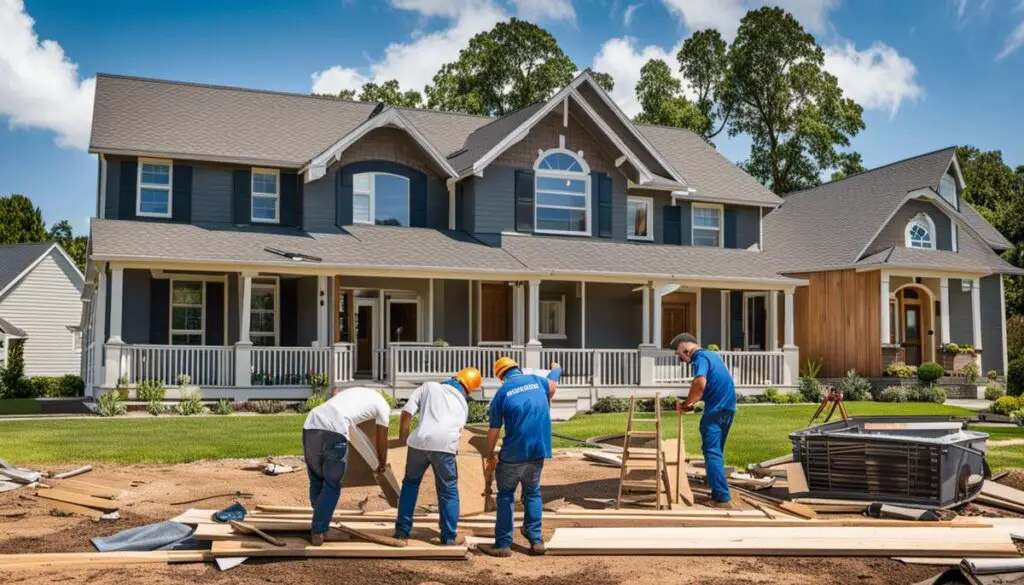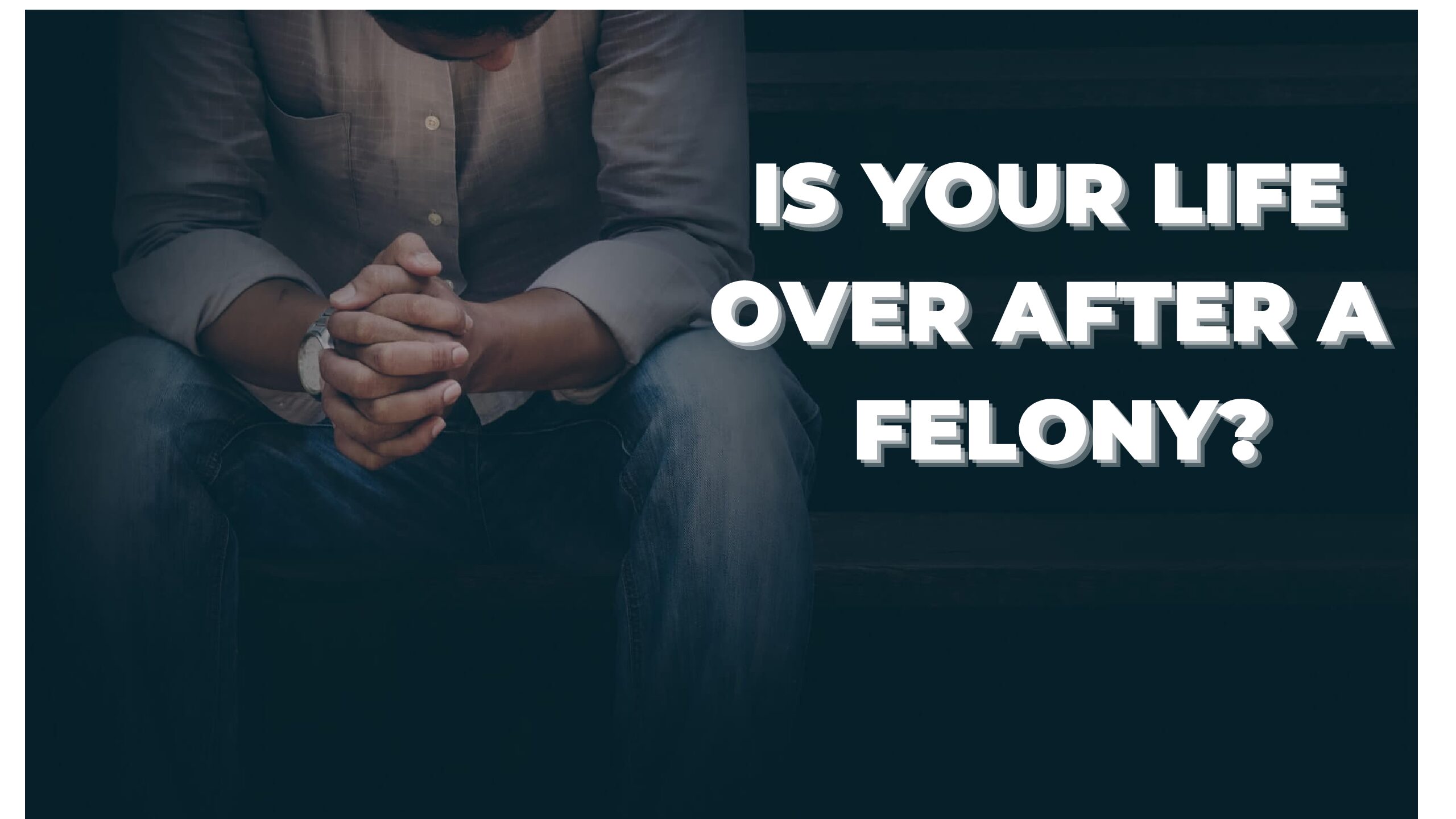Flipping Houses With Felony Conviction: Can You Do It?
Introduction
Many people are eager and excited to break into the profitable world of real estate investing, particularly house flipping. And by now, I am sure you may have seen one of the many tv shows where would-be real estate investors (actors) make a fortune selling homes in record time, all while battling a few challenges here and there, yet making it all look super easy.
However, nobody ever talks about one of those challenges possibly being a felony conviction. After all, a felony poses a major barrier across a variety of careers, so you would think it poses certain complications in respect to real estate investing and house flipping, especially when considering the risks of illegal property activities.
This post outlines the associated legal conditions in real estate, the licensing process for a felon, and even alternatives for those who face difficulties obtaining a license, although flipping houses does not even require a license.
Going further, we bring forth some inspiration by showcasing success stories of individuals with felonies who have achieved success in the real estate industry and house flipping, in order to guide you through the process.

CAN YOU FLIP HOUSES WITH A FELONY CONVICTION?
Investing in real estate is one area where having a criminal record has less of a severe impact on your bottom line. Real estate investing, particularly house flipping, does not require licensure in most states. This allows individuals with felony convictions to purchase properties, renovate them, and sell them for a profit, all legally.

The Basics of House Flipping
House flipping involves the buyer’s purchases of properties at a lower market value, making renovations or improvements, and then selling the property at a higher price for profit. This real estate investment strategy can yield substantial returns, and it does not typically require a formal education or specific qualifications.
However, it does require capital to invest in the property and renovations, and/or a good credit profile, as well as an understanding of local real estate markets and refurbishment costs.
You may also want to check out: Does a Felony Conviction Affect Your Credit Score
Regulations for a Convicted Felon Flipping Houses
In terms of regulations, any individual, including those with a felony conviction, can buy and sell properties, as there is no legal requirement that prevents a felon from purchasing a home, renovating it, and reselling it.
However, some restrictions may apply depending on the type of felony conviction. For example, if the conviction was for a financial crime such as fraud, an individual may face more scrutiny in acquiring and securing financing.
Crimes of moral turpitude, which are seen as particularly egregious by lenders, can make it especially challenging for individuals with such a background to secure loans from hard money lenders, particularly in the context of real estate investing.
In addition to the type of felony, the timing of the conviction may also have an impact. If a person has served their time and has been released, their opportunities could potentially be different than someone currently on parole or probation.
Understanding the Bullshit of an Illegal Property Flipping Scheme for Those with a Felony Conviction
Being armed with a felony conviction can present extra challenges when house flipping. Issues like obtaining loans and securing financing can take on a level of complication, alongside potential negative bias from sellers, contractors, and/or suppliers. Unfortunately, the world we live in discriminates.
If you hold a felony conviction and are considering house flipping, it’s essential to grasp these challenges in depth. This requires dedicated research and consultation with professionals in the legal and real estate fields, in order to understand your rights and exit strategies for investing.
Additionally, understanding the legal and financial risks, including the potential for mortgage fraud, is crucial. Engaging in deceptive practices, such as colluding with appraisers to inflate property values, constitutes mortgage fraud and is subject to criminal penalties.
While a felony conviction may bring obstacles, it does not absolutely bar one from investing in real estate, specifically house flipping. Quite the contrary, this path (house flipping) can be a viable income source or employment avenue for individuals with felony convictions.
Still, it’s important to remember that house flipping can be a risky business even for those without criminal records. Thorough market research, careful cost calculations, and a well-rounded understanding of local laws can help manage these risks effectively.

Legal Conditions on Real Estate Investment with a Felony
The Legal Landscape of Real Estate Investment When You Have a Felony Conviction
Once again, real estate investment, particularly house flipping, can sometimes become a tricky terrain to navigate for those with a felony conviction. The nature and severity of the felony can impose additional challenges, presenting unique hoops to jump through, especially when avoiding involvement in an illegal property flipping scheme. And also once again, it’s vital to be clear that a felony conviction does not constitute an automatic rejection to investing in real estate or house flipping.
Housing Laws and Regulations
Housing laws and regulations may impact a felon’s ability to invest in the real estate business, largely because of clauses that intend to protect consumers from illegitimate or unethical practices. For instance, certain laws may restrict landlords who have convictions related to financial fraud or dishonesty. For these offenders, getting a real estate license could prove more challenging.
You may also want to check out: Can I Get a Real Estate License With a Felony Conviction
However, the specific housing laws and restrictions vary greatly from state to state. Some states have “rehabilitated” clauses that essentially pardon felonies after a specified period without new offenses. Such clauses could allow a felon to get a real estate license and enter the real estate business.
Impact of a Felony on Real Estate Investing
Different types of felonies may have varying impacts on opportunities to invest in real estate. For instance, a felony conviction related to property damage might raise concerns for lenders and sellers, thus limiting a felon’s ability to secure financing or complete a purchase transaction.
Fraudulent financial activities, such as embezzlement or identity theft, may similarly discourage lenders and partners, as they imply a risk of dishonest business practices. Moreover, a violent crime conviction could also limit opportunities if it makes lenders, sellers, or potential partners hesitant due to concerns about safety or reliability.
However, becoming a general contractor can serve as an alternative path for felons in the real estate market. As a general contractor, individuals can build professional relationships with realtors and property owners, which may facilitate opportunities for investing in properties, reduce costs for house renovations, and ultimately enhance networking within the industry.
DO I NEED A LICENSE TO FLIP HOUSES WITH A FELONY CONVICTION?
When it comes to flipping houses, many activities – such as purchasing, renovating, and selling properties – do not legally require a real estate license. Therefore, even if obtaining a license is challenging due to a felony, it does not necessarily rule out the opportunity to flip houses.
However, securing financing can be a hurdle. Conventional lenders such as banks may possibly conduct background checks, and a felony could affect their willingness or ability to offer loans, particularly if the felony involved financial misconduct.
Private lenders, however, may be more forgiving, especially if the potential borrower can demonstrate commitment to rehabilitation or establish a strong business plan. Note that terms from private lenders, such as interest rates and repayment schedules, may not be as favorable as those from conventional lenders.
A felon may also need to be more resilient and creative in fostering business relationships, as the stigma of a felony can influence potential partners’ willingness to work with them. Persistence, transparency, and professionalism can go a long way in overcoming these hurdles.
It is advisable for those with a felony conviction to seek legal advice, as an understanding of the local housing regulations and potentially applicable “rehabilitation” clauses would be crucial.
Getting Licensed as a Felon
The Licensing Procedure with a Criminal Record
The first major step towards a house-flipping venture for a felon may involve obtaining a real estate license. This process necessitates close examination from state licensing boards and requires fulfillment of certain prerequisites set forth by the assigned real estate commission.
These prerequisites aren’t constant and can vary from state by state. They typically include educational requirements, passing a licensing exam, and passing a background check. It’s important to note (while not shocking), a felony conviction on one’s record might raise eyebrows during the background check process.
License Approval as a Felon: Does a Felony Conviction Matter?
While a criminal history could impact the licensing process, having a felony is not automatically disqualifying in all states. Various factors, such as the nature of the crime, the time elapsed since the conviction, and evidence of good character or rehabilitation since committing the crime, are taken into account.
The licensing board evaluates these factors and reviews any patterns of unethical, dishonest, or criminal behavior to determine if the applicant poses any risk to public safety or trust if they were to hold a real estate license.
Risk Vs Reward: The Possible Outcomes for Felons
When a person with a felony applies for a license, there are three general outcomes: outright denial, granting of a restricted license, or awarding of a full license. A restricted license may limit some of the activities a licensed real estate agent can engage in, such as restrictions on handling money.
In many cases, transparency about the felony during the application process can result in a more positive outcome. Providing information about efforts made toward rehabilitation and positive character references can be instrumental in obtaining a license.
State-to-State Variations in the Licensing Process
Licensing criteria differ considerably across states. Some states are more lenient than others, and the interpretation of “good moral character” can vary. For instance, states like New York may decide on licensing on a case-by-case basis. Others like Florida might require a period of time to pass post-sentence before the felon is eligible to apply for a real estate license.
You may also want to check out: Which States Are Best For A Convicted Felon
Overcoming a Felony Conviction
Getting a real estate license with a felony conviction is challenging but not impossible. A person with a felony can increase their chances by seeking legal advice to understand the process better, taking rehabilitation programs to show an effort towards building a better character, and staying educated about the state laws to understand the requirements precisely.
Real Estate Possibilities After a Felony Conviction
A felony conviction could certainly complicate the trajectory towards becoming a real estate agent, however, it does not straightaway and permanently disqualify a person. The focus here is to demonstrate to any licensing board that a prior offense does not necessarily hamper the potential to be successful in the real estate field in the future.

House Flipping without a License
A felony conviction can certainly present obstacles, specifically when attempting to secure a real estate license to help your endeavors towards flipping houses. This is largely because licensing authorities, including those in real estate, may consider a candidate’s criminal past when determining their suitability to hold a license. However, there are several lawful and practical options worth exploring to navigate around these challenges.
Partnering with Licensed Individuals
One option for individuals with a felony conviction looking to flip houses is to work in partnership with someone who already has a real estate license. This allows the person with the conviction to be involved in hunting for properties, planning renovations, and selling the finished product, all while the licensed partner manages the legal aspects of buying and selling real estate.
Another alternative strategy is engaging in a wholesale deal, where the investor secures properties under contract and then sells the contract to another party without needing financing.
This type of partnership or wholesale deal can provide benefits such as shared resources and knowledge, however, it does require a high level of trust and cooperation between partners.
Using Limited Liability Companies (LLCs)
Another approach is to set up a limited liability company (LLC) to purchase and flip the properties. An LLC protects personal assets from business liabilities and allows the ownership of real estate without a license. However, an LLC can be complex and costly to set up and maintain, and certain states may carry out background checks or deny LLC applications based off felony convictions. Therefore, it’s essential to check state-specific regulations.
Working under a Contractor’s License
If the bulk of the work in flipping houses involves renovations, another option could be to work under someone else’s contractor’s license. This would allow you to carry out the necessary remodeling work legally, assuming you have the skills or are working under someone who does. The license holder would be responsible for ensuring all work complies with local laws, and you would be considered an employee or partner.
Real Estate Investment Trusts (REITs)
Investing in Real Estate Investment Trusts (REITs) is another possibility. REITs are companies that own, operate or finance properties. By investing in a REIT, you can indirectly engage in real estate and earn a portion of the profits without needing a personal license. However, investing in REITs can be risky and requires thorough research and a solid understanding of the real estate market.
Considerations and Risks
There are various methods to get involved in house flipping, even with a felony conviction, from partnerships and working under a contractor’s license to operating an LLC or participating in REITs. However, each option presents its own set of risks. A partnership necessitates trust and a legal agreement to protect all parties involved.
Both operating an LLC and working under a contractor’s license entail adherence to legal regulations at the local and state levels. Investing in REITs, meanwhile, demands a certain level of financial savvy. The potential gains can be significant, with some schemes promising several thousand dollars, but non-compliance could lead to further legal complications and repercussions. It is crucial for individuals with a felony conviction to seek legal and financial advice before diving into any of these avenues.
You may also want to check out: The Most Expensive Advice I Ever Got From An Attorney

Success Stories
Triumphant Returns to Real Estate: Felons Flip Houses Successfully
Despite the challenges a felony conviction poses, success stories can be found within the house flipping sphere. Through relentless determination, targeted education, and sound decisions, several individuals have managed to flourish in the real estate industry post-conviction, particularly within house flipping.
Take, for example…
Marty Boardman served eight years in federal prison for financial crimes before making a successful pivot to house flipping. Undaunted by his past, Boardman dedicated himself to learning all he could about the real estate industry, from financial aspects and property acquisitions to renovations and effective selling techniques.
Through his hard work and resolve, he was able to carry out successful flips and reap substantial profits. His journey highlights the reality that individuals with a felony conviction can still find fulfilling and profitable careers in house flipping since it typically does not necessitate formal education or licensing.
Case Study: The Second-Chance Structure Model
Second Chance Homes, a non-profit organization in Los Angeles, provides a fascinating example of successful house flipping by people with felony convictions. The organization provides stable employment opportunities to previously incarcerated individuals, including teaching them construction skills to rehabilitate blighted properties. This model benefits both the individual, who learns a trade and earns income, and the community, which sees the improvement in local homes.
The organization’s comprehensive training covers all areas of home construction, including plumbing, electrical work, carpentry, and finish work. Once the trainees have learned these skills and the refurbishing process is complete, the house is sold on the open market, yielding profits that are invested back into the organization or used for further training.
Role of Education In Success
Education plays a critical role in empowering individuals with felony convictions to start their own house flipping businesses. As seen in the case of Marty Boardman, the practical knowledge of the real estate industry and house flipping was instrumental in his comeback.
Many online platforms offer courses on real estate investment and house flipping. Some programs are even tailored specifically for individuals with felony convictions, teaching them how to navigate the industry, manage their finances, understand real estate law, and ensure lucrative property flipping.
Networking and Team Building
Collaboration and networking have been key for individuals on the rehabilitative path. By partnering with real estate professionals, contractors, house designers, financial advisors, and potential investors, they have built successful house flipping ventures.
One such example is an individual named John, who, after serving his sentence, partnered with a former real estate agent. Together they established a thriving house flipping business. John provided the management and renovation work, while his partner provided industry knowledge and contacts for buying and selling properties. Their partnership has been mutually beneficial and an encouraging example for others looking to enter the house flipping business with a felony conviction.
The common thread running through all these success stories is a determination to overcome the challenges. With the right skills, work ethic, and networks, turning a new leaf in house flipping despite a felony conviction is indeed achievable.
Conclusion
Although a felony conviction can complicate the pathway to becoming a real estate investor, there are exceptional cases where individuals have forged a successful career in house flipping, proving the impossibility can be made possible.
Through appropriate legal procedures, strategic partnering, utilizing existing regulations, and continuous commitment, anyone, including those with a felony conviction can make headway in the realm of real estate.
The world of house flipping provides examples of conquerors of their past criminal pursuits. These success stories demonstrate that such obstacles can be transformed into stepping stones, offering a different perspective on the possibilities available for individuals with felony convictions.







